 Back
Back
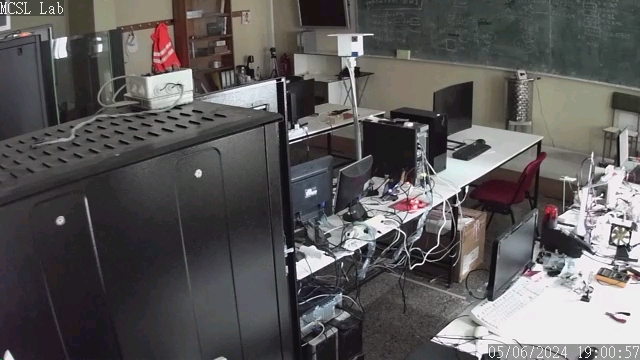
Provision of educational work
- Scope: The main purpose of the Laboratory team is the provision of educational courses and research activity in the areas of data analysis, algorithms, Distributed Systems, and IoT as well as the support of courses related to applied information sciences.
- Information: The Laboratory team of Distributed Microcomputer Systems was established in 2017 and is a newly established team. It is located at the 001 -ground floor at the Dept. of Mathematics building.
Member and the Head of the Laboratory team is Dr. Kontogiannis Sotirios Scientific staff at the Department of Mathematics of Ioannina. The laboratory team is funded by research programs, or by private sector funds.
The members of the laboratory team are members of the academic community, doctoral candidates, and postgraduate students with common research and business interest in the areas of algorithms, Artificial Intelligence, Microprocessors, Network Protocols, and Distributed Systems.
 Back
Back
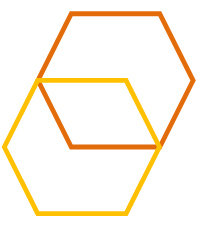
Patents
- Date: 2014-2024
- Number of Patents: 4 (2 retired)
- Area:IoT systems
- Patent Owner-Inventor:Kontogiannis Sotirios
 Automated beehive cell of conditions control and response (Α.Μ.Κ.Ε.Κ.Α.) – National Greek Patent No. ΟΒΙ 1008833, International classification Α01Κ/ 47/00, Α01Κ 47/06, G05D 27/02, 31/08/2016. -RETIRED
Automated beehive cell of conditions control and response (Α.Μ.Κ.Ε.Κ.Α.) – National Greek Patent No. ΟΒΙ 1008833, International classification Α01Κ/ 47/00, Α01Κ 47/06, G05D 27/02, 31/08/2016. -RETIRED
 Automated humidity control system for beehives – National Greek Patent No. OBI: 1009036, International classification A01K 47/06, G05D 27/02, G05B 19/04, 26/05/2017. -RETIRED
Automated humidity control system for beehives – National Greek Patent No. OBI: 1009036, International classification A01K 47/06, G05D 27/02, G05B 19/04, 26/05/2017. -RETIRED
 Autonomous Viticulture Beacon – National Greek Patent No. OBI: 1010255, International classification A01G 23/00, G01D 21/02, 27/06/2022.
Autonomous Viticulture Beacon – National Greek Patent No. OBI: 1010255, International classification A01G 23/00, G01D 21/02, 27/06/2022. MULTI-POINT THERMAL SENSING AND SOUND RECORDING MICRODEVICE CAPABLE OF DETECTING CRITICAL BEEHIVE CONDITIONS – EU Patent, EPO No: EP4 399 967, IPC A01K 47/06, A01K 29/00, A01K 55/00, 16/07/2024. [EPO - Link]
MULTI-POINT THERMAL SENSING AND SOUND RECORDING MICRODEVICE CAPABLE OF DETECTING CRITICAL BEEHIVE CONDITIONS – EU Patent, EPO No: EP4 399 967, IPC A01K 47/06, A01K 29/00, A01K 55/00, 16/07/2024. [EPO - Link]
 Back
Back
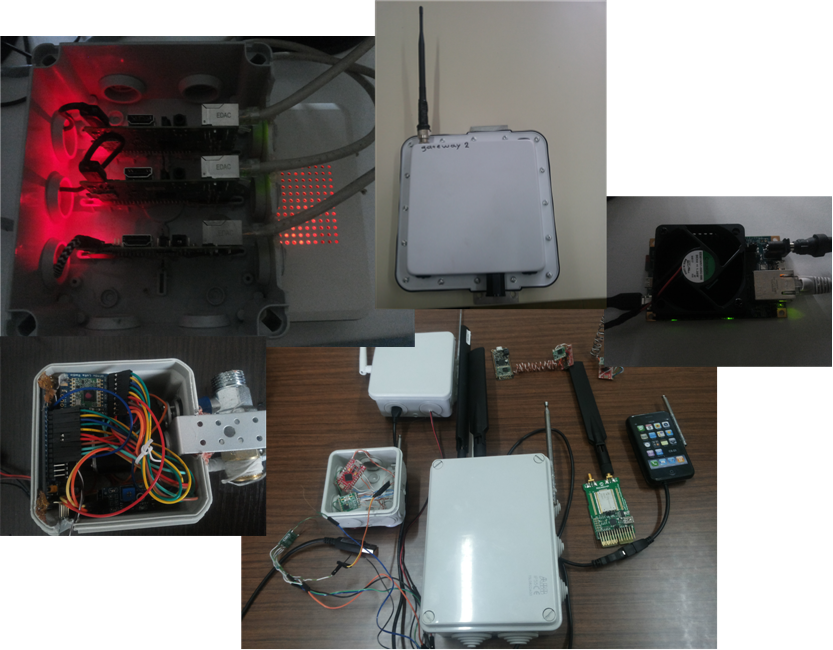
ΙοΤ sensors- Distributed microcomputer systems
- Areas:IoT systems for agriculture and smart cities, Distributed Systems and algorithms, Data mining and A.I. algorithms, Middle-ware and Application protocols for Distributed architectures and Clustered applications, Transport protocols for real-time and interactive applications.
Our laboratory focuses in the programming of microcontrollers (AVR / PIC / PLC), FPGAs (Mojo, Xilix) and microprocessors (RPi, Edison boards, Broadcom SoC, Beagle boards, BeagleBone). Controllers interconnection with sensors and implementation of intelligent decision algorithms.
Our research proposals and implemented prototypes are the patented beekeeping system, our published proposal for the Smart Wine Barrel, automated smart irrigation systems, bee monitoring systems, LoRaWAN distributed systems and our published proposal for an NFC based livestock monitoring system.
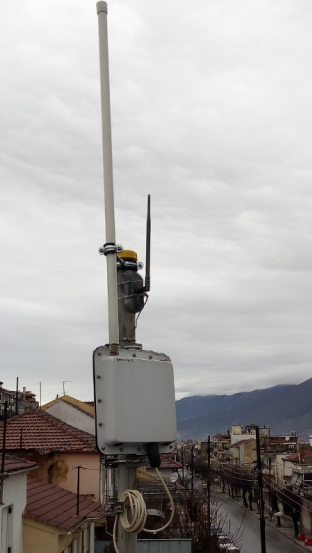
IoT services - Distributed micro-systems
Our laboratory also focuses on the design and implementation of wireless micro-system interfaces using wireless technologies such as BLE, IEE802.15.4, ZigBee, RF12 / 22/69, and LoRa / LoRaWAN. To experiment with the IoT metering, applications and application protocols for smart cities, two LoRaWAN nodes have been placed at the Department of Mathematics, Ioannina.
Wireless Meteo station of Ioannina city, interconnected to the Wunderground
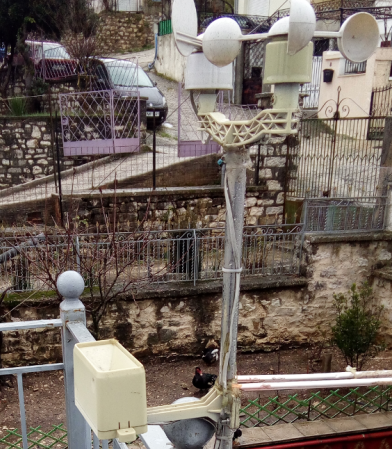
 Back
Back
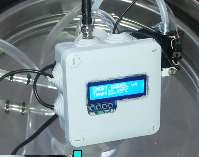
Smart Wine Fermentation Barrel
The smart barrel is the realization of an idea for a vinification barrel that incorporates new possible wine-making sensors for the winery industry. The intelligent barrel includes a pH meter, a CO2 sensor, a temperature sensor, a Baume measurement sensor (Brix) and a wine color-purity sensor, a three-way expansion valve. In the implemented prototype, all of these sensors are in a stainless barrel with a 2x16 LCD for the sensor readings. This barrel was constructed in cooperation with the Tekmon Idea lab.
 Back
Back
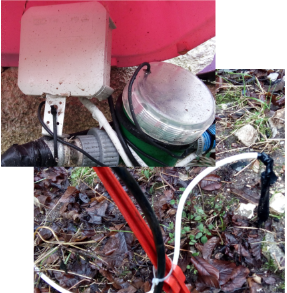
New Irrigation Technologies
In collaboration with the Department of Business Administration of the Technological Educational Institute of Western Macedonia, it was implemented in the context of funding of ELKE TEI, a relative remote controlled servo over new wireless data networks (see video 1,video 2), such as LoRa, related remote irrigation valve manager protocol. At the same time new intelligent water management algorithms for small crops and greenhouses have been studied and proposed.
 Back
Back
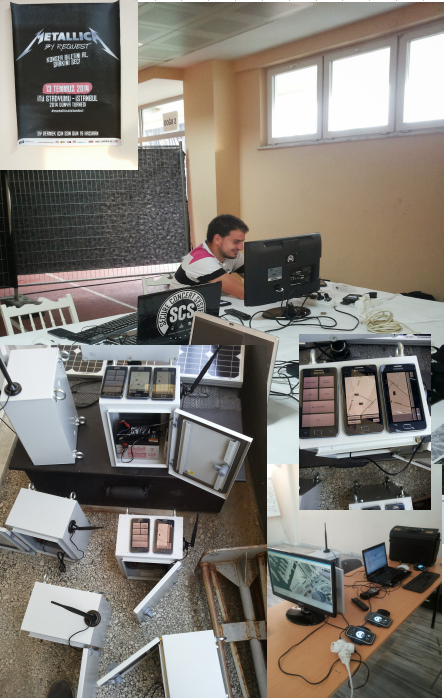
Research Program Secure Concert System - SCS
- Information:
SCS is an Incident Response system originally developed in cooperation with Tekmon and subsequently expanded and completed as a incident response product of Tekmon. SCS is the only Greek solution for dealing with critical incidents in concert venues where communication voice capabilities are limited and existing Telecom solutions are in a state of congestion. The originally implemented SCS system consisted of:
- The Independent and Energy Independent Communications Network using IEEE802.11g wireless technology and the Mobile Adhoc Networking (Mobile) Ad-hoc link-state protocol. A set of 12 wireless and autonomous random placement nodes constitute the telecommunication backbone of SCS Network, which covers the Concert Hall
- On this Network, SCS hosts the central server where it receives through notifications, critical alerts and messages, either text or visual or vocal, through specifically designed application protocols. The central server implements the logic of the Crisis Response Plan of each Event controller.
- The mobile phone application is the one that receives or sends from / to the server the messages as well as the location of each device (GPS coordinates). The location of all mobile devices is displayed on a separate Dashboard screen where the System Administrator interacts with the system users.
 Back
Back
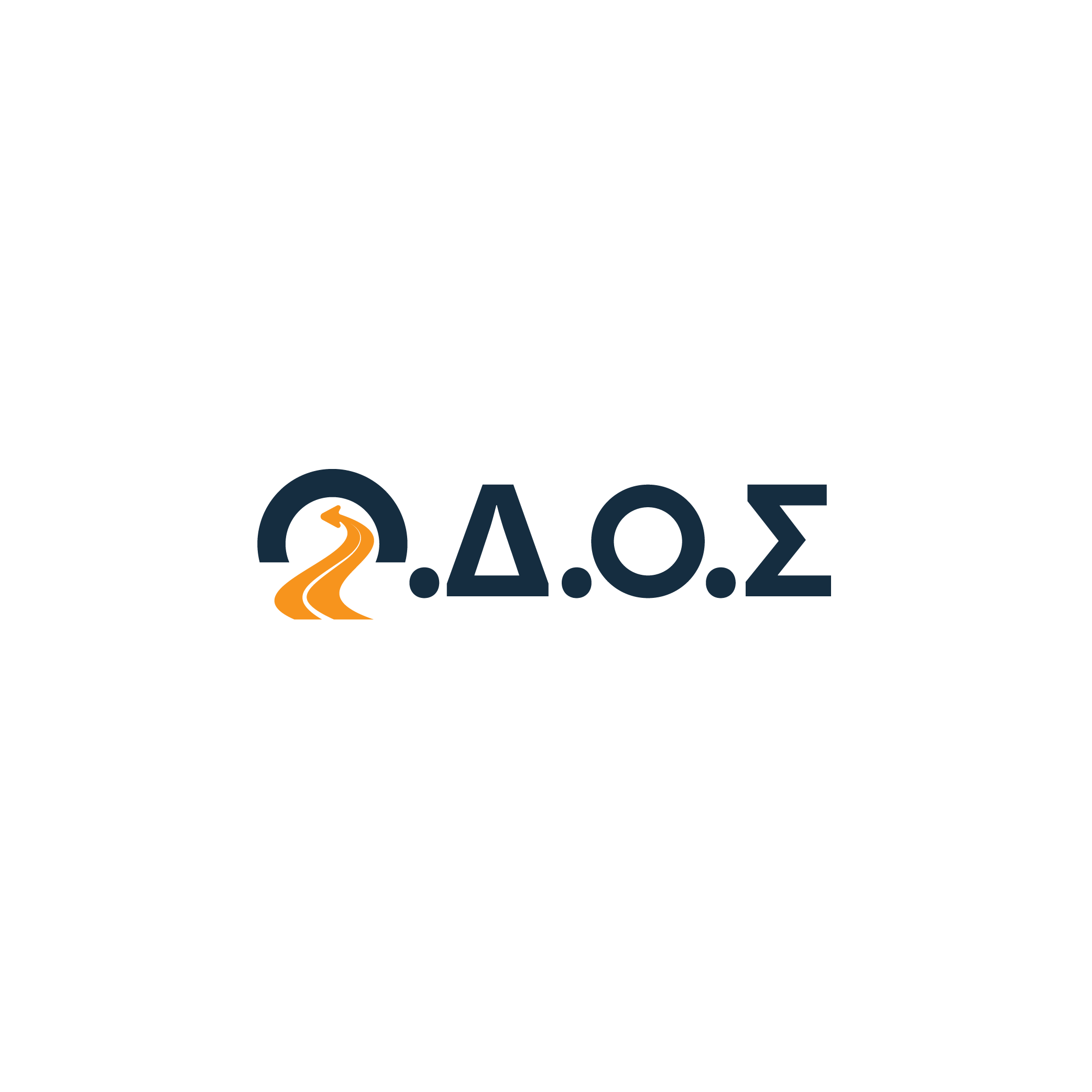
Research Program H.M.R.T. (Ο.D.Ο.S.)
- Information:
Holistic Resource and Emergency Situations Management on Motorways and Road Tunnels through Intelligent Technologies
The program will be implemented in cooperation with TEKMON and EGNATIA ODO within the framework of the Operational Program "Research I Create Innovation - Intervention: II Business Partnerships with Research Bodies 2018-2020". EYDE-ETAK. Project Coordinator is the Dept. of Mechanical Engineering NTUA and project collaborator the Democritus Industrial Safety Laboratory
Road transport has the largest share in freight and passenger traffic among the other categories of transportation. In order to achieve further development and quality of operation, increased safety is a prerequisite. In particular, the safety of road tunnels is a major issue as tunnels are a major part of road infrastructure, which has particularly high demands on capital and human resources. The improvement of the construction technology over the past two decades has further enhanced the contribution of tunnels as an economically viable solution to the development of new road networks. This fact is also reflected in the Greek area as the construction of the new road axes (AIGAIOU, EGNATIA ODOS, MOREAS, IONIA ODOS, OLYMPIA ODOS) made Greece the fourth country in the European Union for absolute number of tunnels over 500 meters long. However, the use of road tunnels, although contributing significantly to economic development, it also has a particularly important intrinsic hazard in terms of the severity of accidents likely to occur within them, such as incidents including fire. When such accidents occur due to the closed environment of the tunnels, highly adverse effects can be caused, in particular with regard to human casualties and disasters in the equipment and tunnel infrastructure. Thus, road tunnels are nowadays confronted as complex social-technical systems. In order to increase the safety of tunnels during the operational phase, the present research proposal suggests a new innovative holistic system for the management of emergency situations in road tunnels through sophisticated technological and man-centered methods. Emergency situations may include the occurrence of a fire within the tunnel, the presence of a high level of monoxide and other toxic gases, the release / leakage of flammable volatile liquids / gases on the carriageway or generally the interior of the tunnel, etc. In order to increase the safety of tunnels during their operation, the proposed holistic emergency management system, together with the intelligent management tools that accompany it, achieve the following key objectives: (a) developing a holistic system for managing contingency situations Occur in the tunnel system. Taking into account the nature of the accidents (mainly fire), the equipment available, the behavior of the users and the actions of the control center operators and in general the operating staff. (b) information / training of operators of tunnel traffic control centers having the first and central role in incident management; (c) thorough examination of the fire within the tunnel as the most critical emergency situation in a tunnel; (e) developing an intelligent communications system to deal effectively with emergencies. With the development and integration of intelligent services, the proposed system will be one of the first most integrated systems to offer, through an interactive assistant to the operator of the business center, the appropriate response protocols and resource management methods in emergencies, while interacting with Human-robot chat in the mobile phone application will enable the relevant staff with voice or written questions to be informed of their evolution.
«Co‐financed by the European Union and Greek national funds through the Operational Program Competitiveness, Entrepreneurship and Innovation, under the call RESEARCH – CREATE - INNOVATE (project code:Τ1EDK-02374)»

 Back
Back

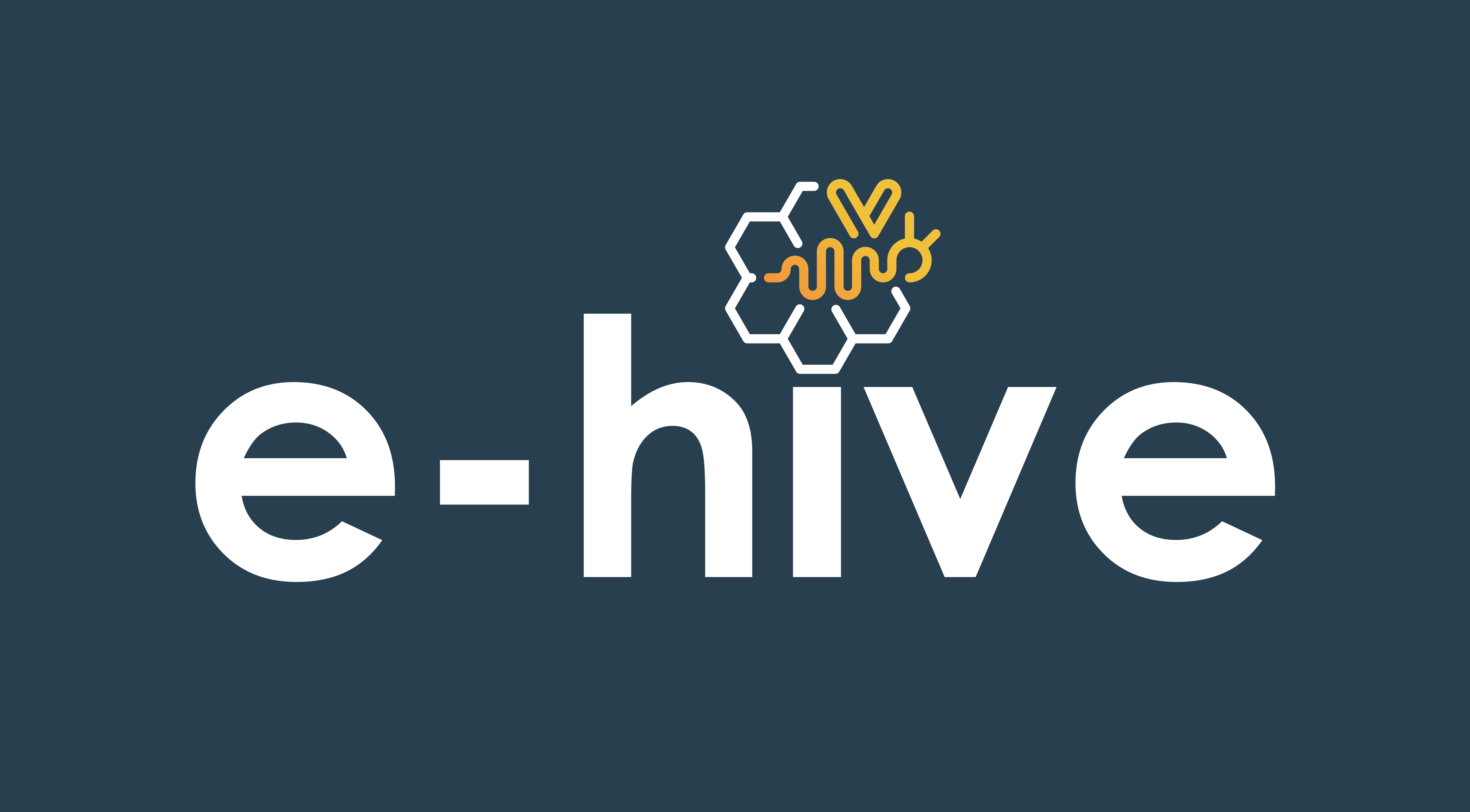
Implementation of a prototype Beehive Security system funded by PoC - Patras Science Park
-
IRBS Incident Response Beekeeping Safety system
- Information:
The proposed system (Incident Response Beekeeping Safety system- IRBS) is an incidents and early warnings system focusing on safety and the assessment of honeybee conditions. The IRBS system includes safety monitoring mechanisms of the beehive conditions, using low energy and cost sensors and transponders placed on the beehives. Low power and long range wireless communication protocols collect data from each beehive and transmit them periodically to the IRBS cloud services. Security algorithms and proposed communication protocols of the IRBS system, alert the apiarist on events, collect sensory data and use data mining techniques to decode and evaluate the type of threats or incidents. Incidents are then presented to the apiarist through apropriate IRBS mobile phone application.
The Project has received funding from Patras Science Park under the Proof of Concept program (grant agreement No 3318B)
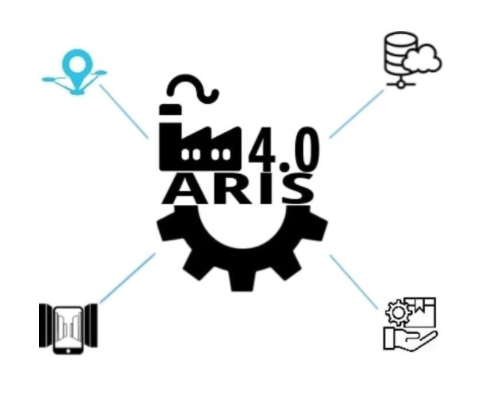
Research Program A.R.I.S.
- Info:
Augmented Reality & Ιnteractive System for holistic industrial maintenance management.
The program will be implemented in cooperation with TEKMON and HELPE S.A. within the framework of the Operational Program "Research II Create Innovation - Intervention: II Business Partnerships with Research Bodies 2020-2023". EYDE-ETAK. Project Coordinator is the Dept. of Mathematics, University of Ioannina and project collaborator the school of Rural and Surveying Engineering, Aristotle University of Thessaloniki.
The safety and enforcement of preventive maintenance procedures specifically for equipment in large industrial infrastructures is a matter of major importance, in particular, in the Oil industry. A pump or extruder malfunction may cause disruption to the production line and thus, result in significant economic damage. These procedures are listed for experienced staff members of the Technical Directorate of Hellenic Petroleum. An increasing number of machines, complexity of technical checks and maintenance procedures, expansion of industrial infrastructure and the volume of production have increasingly given prominence to the safety and technical maintenance of equipment. In the context of Industry No. 4.0, apart from automating the production and collection of sensor data that have already been attained at the first stage by programmable logic controllers (PLC’s), new planning principles concern the capability of interconnecting machines and people. Information availability to the right staff in real time and its presentation using augmented reality with mobile devices in conjunction with intelligent decision-making methods based on engineering learning techniques are the future of modern industry which will in turn simplify the maintenance procedures of equipment and facilitate technical staff in their handling.
In order to optimize the availability and utilize industrial maintenance information through the interconnection of machines and people and consequently increase infrastructure security, the proposed integrated, interactive, augmented reality, industrial maintenance system combined with intelligent management technology tools will achieve the following: (a) Industrial resource management software development based on coding industrial maintenance procedures and creating three-dimensional photorealistic (digitaltwins) models; (b) Technical and management users’ training and information leaflet design will structurally summarize the findings of the coding. (c) Innovative positioning algorithms developed for indoors and outdoors (d) Data collection of an industrial sensor network, staff technical checks and their utilization in the design and implementation of fault prediction algorithms of equipment parts. (e) Detection of industrial resources using mobile device cameras and identifying the corresponding digitaltwin and its properties with machine learning methods. (f) Development of a mobile device augmented reality application (mobile application) with the potential of listing industrial resource information (e.g. maintenance history, pending actions, etc.) and sensor data by detecting or positioning them, and thus, interacting with staff members, allowing data entry in digital check forms and providing instructions for moving it to a designated space by taking into account digitally mapped danger zones and authorized access.
«Co‐financed by the European Union and Greek national funds through the Operational Program Competitiveness, Entrepreneurship and Innovation, under the call RESEARCH – CREATE - INNOVATE (project code:Τ2EDK-00708)»

 Back
Back

Research Program BeeQ
- Info:
A Quality Monitoring system and automatic disease recognition for Beekeeping.
This program will be executed by LIMETech company, within the framework of the Operational Program "Research II Create Innovation: II Business Partnerships with Research Institutions 2020-2023" GSRT. Principal Investigator is Dr. Sotirios Kontogiannis, scientific staff at the Dept. of Mathematics, University of Ioannina.
The most important issues of modern beekeeping include the quality of exported beekeeping products (e.g. honey, royal jelly, propolis, etc.), which are mainly related to the monitoring of environmental conditions both internally and externally in each hive. Existing systems strictly link quality monitoring to a hive by monitoring environmental conditions. However, an important factor influencing both colony survival and honey yield is the ability to control temperature and humidity in the hive.
The BeeQ system provides a comprehensive, low-energy footprint quality tracking solution that monitors environmental conditions inside and outside cells and monitors cell quality, leading to early diagnosis of any diseases that may occur in the cell. Includes low-energy sensors and transponders installed in the cells, while low-power, low cost and long-range (LoRa Class A) wireless protocols capture the data of each sensor and transmit them to a cloud-based information system that analyzes real-time data and alerts are sent to producers through a mobile app.
The beekeeper's interconnection with BeeQ services takes place through BeeQ-mobile, a mobile phone application, offering: a) automated information services that track the status of hives and colonies. (b) hive and honey production services with warnings, proposals and forecasts; (c) recording of beekeepers' interventions within the colony (as regards nutrition or disease).
«Co‐financed by the European Union and Greek national funds through the Operational Program Competitiveness, Entrepreneurship and Innovation, under the call RESEARCH – CREATE - INNOVATE (project code:Τ2EDK-02402)»

Copyleft 2017 Micro-Computers Lab. No rights reserved
